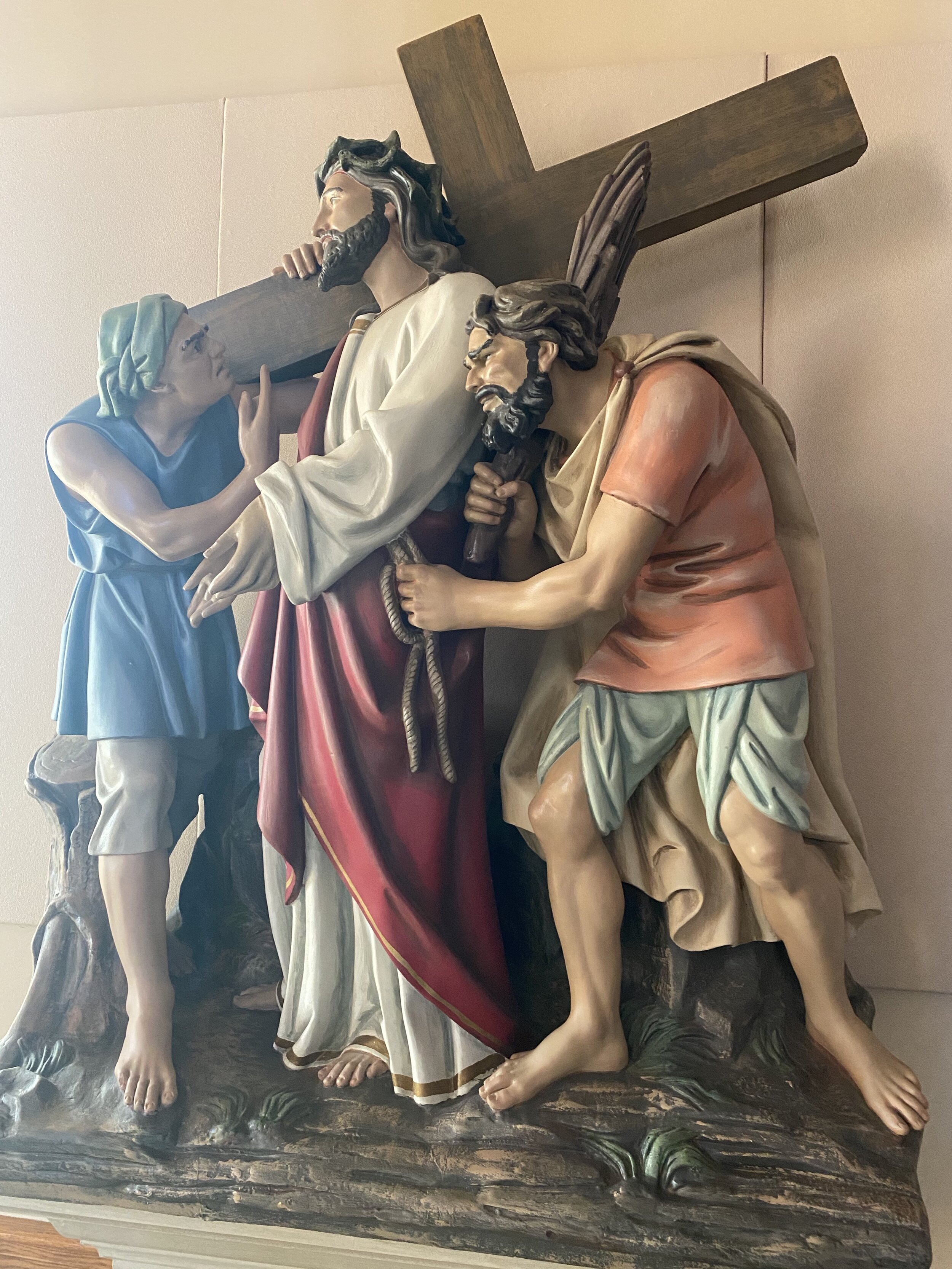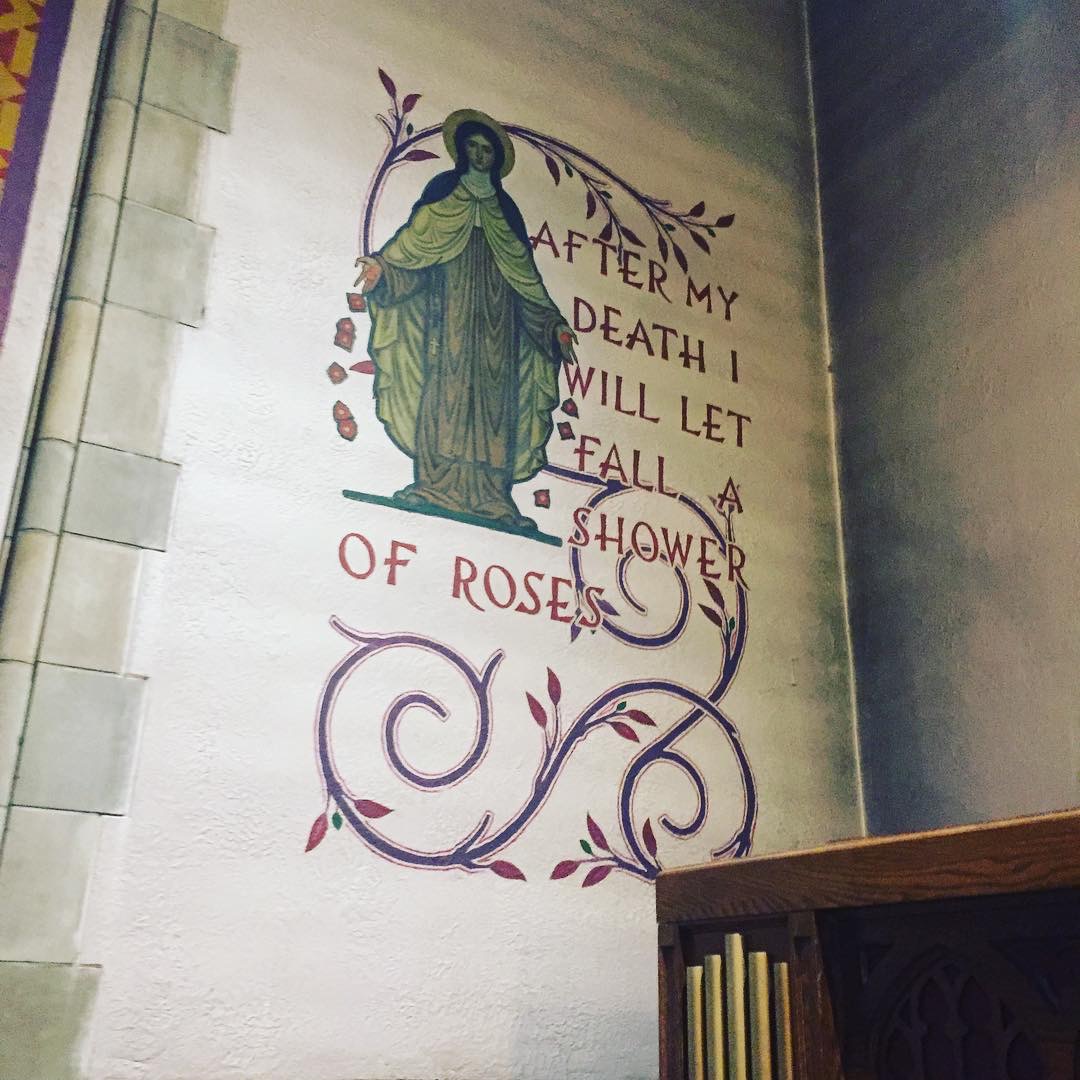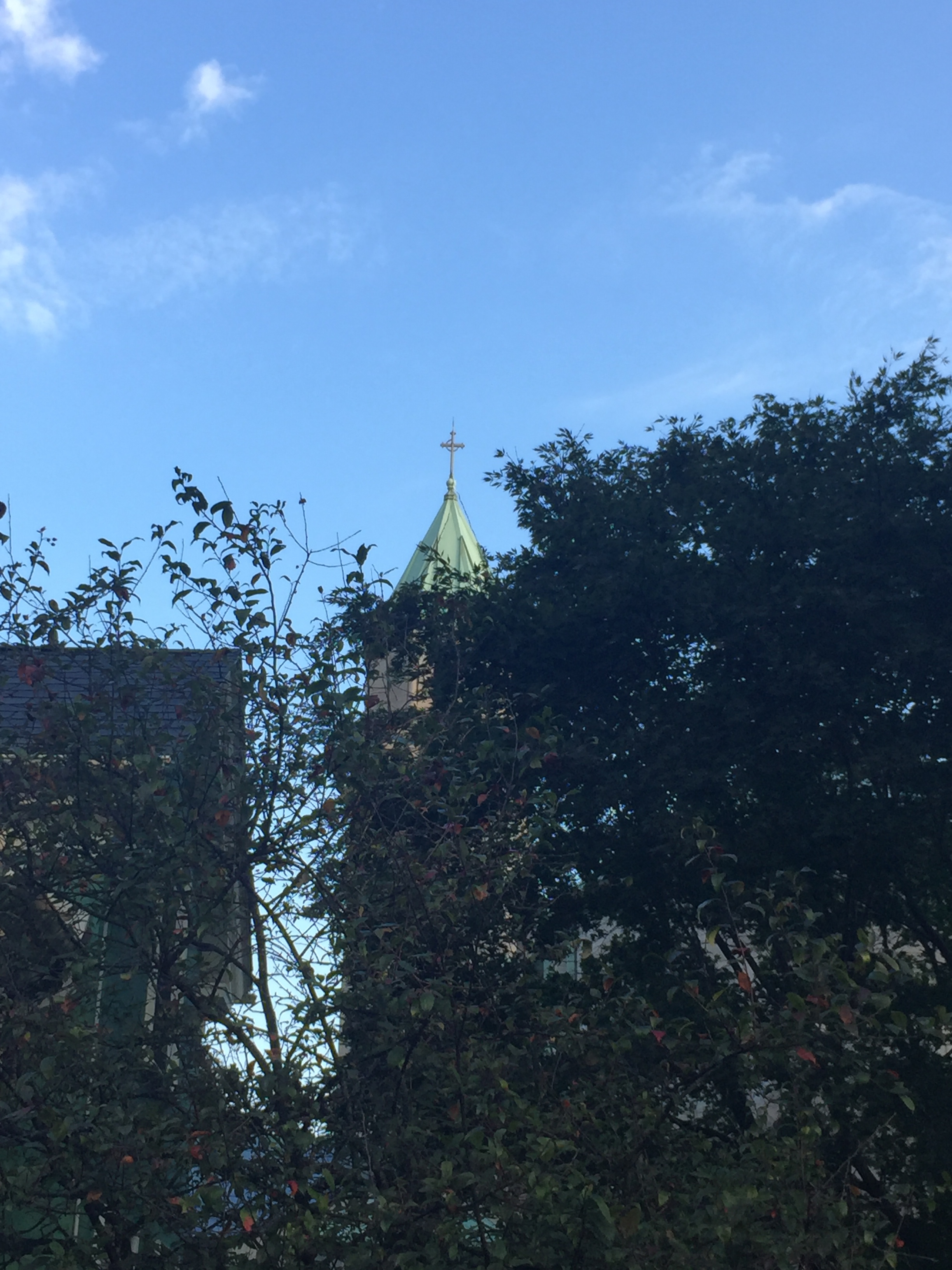She was born on Good Friday. And it was snowing. How’s that for an entrance?
Emily always lived her life close to the Cross—as if she was chosen for it. Her sufferings read like a litany: periodic seizures as a young child, cystic fibrosis from age 11, multiple cases of tuberculosis, a rare virus that put her in a coma for two weeks during college, 16 bouts with pancreatitis, diabetes, a heart condition that required surgery—and I haven’t even mentioned the double lung transplant that, no doubt, extended her life, but also left her with permanent hearing loss and a scar the length of her right forearm.
And yet, once you met her, you never would have known that she suffered through any of this. She never let any of this get the best of her, and remained as joyful and feisty as ever. She could hold a conversation using just movie quotes and show tune lyrics. She would fiercely debate all comers not only in religion or politics, but over who was the greatest hockey player of all time, or what constitutes an authentic Italian restaurant. She would even casually downplay any trip to the emergency room, and called any overnight stay in the hospital a trip to “the Resort.”
So you may wonder, what made all of this possible? How could she keep so cheerful and lively, and live her life so boldly, in the face of such great suffering?
Grace. Only the grace of God, the grace that comes to us through the Cross of Jesus Christ, by which we are saved, could enable Emily to have carried all her crosses with joy. This grace is the free gift of God most high, and through the lens of grace, Emily could see that every day of her existence, as weak and fragile as it was, truly was a gift to be cherished and used well, because God Himself, in the Person of His Son, took on all the weakness and fragility of our human condition to save us from our sins and from death itself, coming into the world that we “may have life, and have it more abundantly” (John 10:10).
And Emily certainly lived the life that she had to the fullest, never letting any setback keep her down. So her weakened hearing prevented her from a singing career? She lived out her passion for musical theater with a long string of chorus roles in community theater productions. So she had to quit her job in the state government after missing too many days of work? She retired early and started a second career as a free-lance writer. So she wasn’t able to give her life to God in a monastery of cloistered Dominican nuns? She joined the Dominican Third Order and lived as an exemplary lay member of the Order of Preachers: teaching the basics of the Catholic faith in the classroom, in her writing, and in conversations with her Protestant friends; preaching the truth of God’s grace with her witness on social media, at conferences, and on Jeopardy!; and making known the gift of God in the only book she published in her lifetime: an autobiography arranged, not in chronological order like most memoirs, not in dramatic order like a Christopher Nolan movie, but according to the Stations of the Cross—as only she could. And so what if she was never married, and was unable to bear any children—something with which she struggled her entire life? She showed her love and her intense loyalty to her family, to her godchildren, and to her friends—of whom I am blessed to call myself one.
And I remain forever indebted to her for driving me 100 miles to the Dominican novitiate in Cincinnati to begin my religious life and my path toward the priesthood, at a time when I could not trust anyone in my family to bring me there. (We got a lot better!) Emily herself was discerning a vocation to religious life at the same time, and we listened to Beethoven’s Ninth Symphony in the car on the way there to celebrate this new beginning. My novice master, upon seeing her, proclaimed, “You had a woman bring you here? That’s bold!”
We have remained good friends for nearly fourteen years, even if I had to miss her final promises as a Lay Dominican because I was the godfather at my oldest niece’s baptism, and she had to miss my ordination because she was a bridesmaid at her brother’s wedding. Her prayers have certainly sustained me throughout my time as a Dominican friar, even as I bore my share of the Cross, and even as I administered the Sacraments to her—and no doubt they will continue, for as both St. Dominic and St. Thérèse of Lisieux have said before her, she will spend her Heaven doing good on Earth.
For one who, as the Psalmist said, was “wretched, close to death from [her] youth” (Ps. 88:16), Emily always sought “the things that are above” (Col. 3:1) and overcame the wretchedness of her condition with anticipation of the joy of eternal life. She could tell that her time in this life was short, even more so lately. She made her only overseas trip to one of her ancestral lands, Scotland, just this fall, and wrote a brilliant article on her experience with not only her transplant, but also with how God’s providence has worked in her life, this past year, that reads now like a last will and testament. Even as she checked into the Resort one last time in the closing days of Advent, she faced it with her signature sense of humor.
And so the woman whom I once described as “a radiant soul trapped in a body held together with duct tape,” who was born on Good Friday, ended up dying at Christmas—but she had to wait until the seventh day, because that’s when it finally snowed. How’s that for an exit? Emily met her Maker on the same day on which the Church sings the Te Deum in thanksgiving to God for His benefits at the end of one period of time, and on which the orchestra in Tokyo always plays Beethoven’s Ninth Symphony to celebrate the end of the year and mark a new beginning.
And even in death, Emily carries out her vocation as a Lay Dominican, preaching and teaching the Truth who is Jesus Christ for the salvation of souls. So what can we learn from her, especially now in this season of Lent? What has she taught us?
First, do not be afraid of the Cross. The world often says that all suffering is to be avoided, and that a life full of suffering is not worth living at all, but Emily has proven otherwise with the way that she lived her life and shown how God can work great good even through suffering, just as He wrought our salvation through the suffering and death of His Son. Following her example, we too can offer the pain and misfortune of this world along with the sacrifice of Christ on the Cross, for as the Lenten hymn says, “For only those who bear the Cross can hope to wear the glorious crown.”
Second, acknowledge your limitations—and then live your fullest life within them. So often we hear of people trying to ignore their limits, or trying to be someone that they’re not, but while each of us is limited by our own bodies and minds, and our human nature, it is this same shared human nature that gives us our dignity and our capacity for the infinite God. Emily demonstrated this with her ability to bounce back from setbacks and find a home, a place in the Church, and a task that she carried out with her writing to build up the Kingdom of God—and to enjoy life along the way. We also can find how God would like to use the gifts that He has given each of us for the common good, and in doing so to live the most fulfilling life we can, by following the words of St. Catherine of Siena: “Be who you are, and you will set the world on fire!”
Third, and last, while many say to “live each day of your life as if it’s your last,” that kind of saying can often be twisted to encourage unreasonable pleasure-seeking. Emily would rather say, “Live each day as it it’s the beginning of eternal life.” For while she was born on Good Friday, she celebrated her last birthday on Easter Sunday, the first and only time in her lifetime that the dates coincided, as if it had to be that way. She acknowledged all of her life after the transplant as borrowed time, and even compared the event to the Resurrection in her writing, but still acknowledged it as only a shadow of the glory to come, a glory into which, we pray (and for which I have seen signs), she has entered. But we already have “a pledge of future glory,” in the words of St. Thomas Aquinas, here on Earth: with the Real Presence of Christ in the Eucharist, to which Emily was so devoted, and as God, the Father, Son, and Holy Spirit dwell within our souls by the grace of Baptism and the other Sacraments. Truly, eternal life begins here and now, and Emily reflected that truth by radiating the light of Christ from within her. We can do the same, showing the life of God to those we meet in this world, while keeping in mind that we are meant for a life after death, which is the only way that our lives can be fulfilled. For in her own words, Emily tells us, “Remember you will die—and then get to living.”
So as we learn from Emily, and as we miss her, let us also pray for her—or if we are so bold, pray to her—that we all may be reunited by the grace of Jesus Christ, who, as we sing in the Te Deum, “overcame the sting of death, and opened the Kingdom of Heaven to all believers.”
Fr. Humbert Kilanowski, O.P. is a Dominican friar and priest who teaches mathematics at Providence College in Rhode Island. He hails from Columbus and met Emily at a Lay Dominican meeting at St. Patrick's Church, the friars' parish in town, in Lent of 2010, and joined the Order that following summer.























